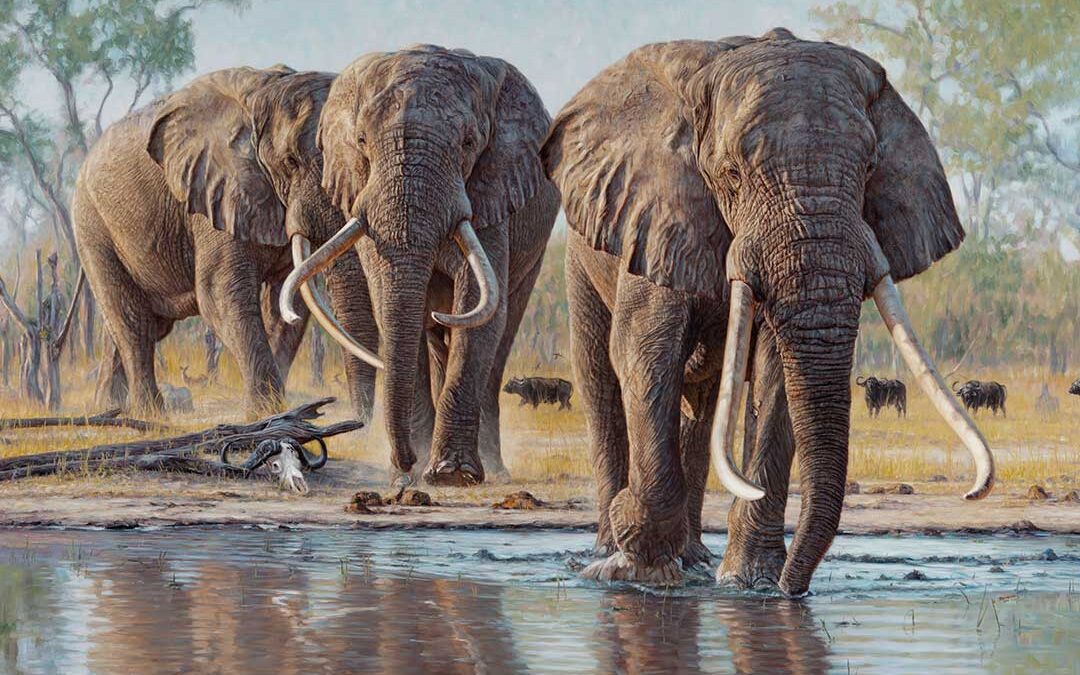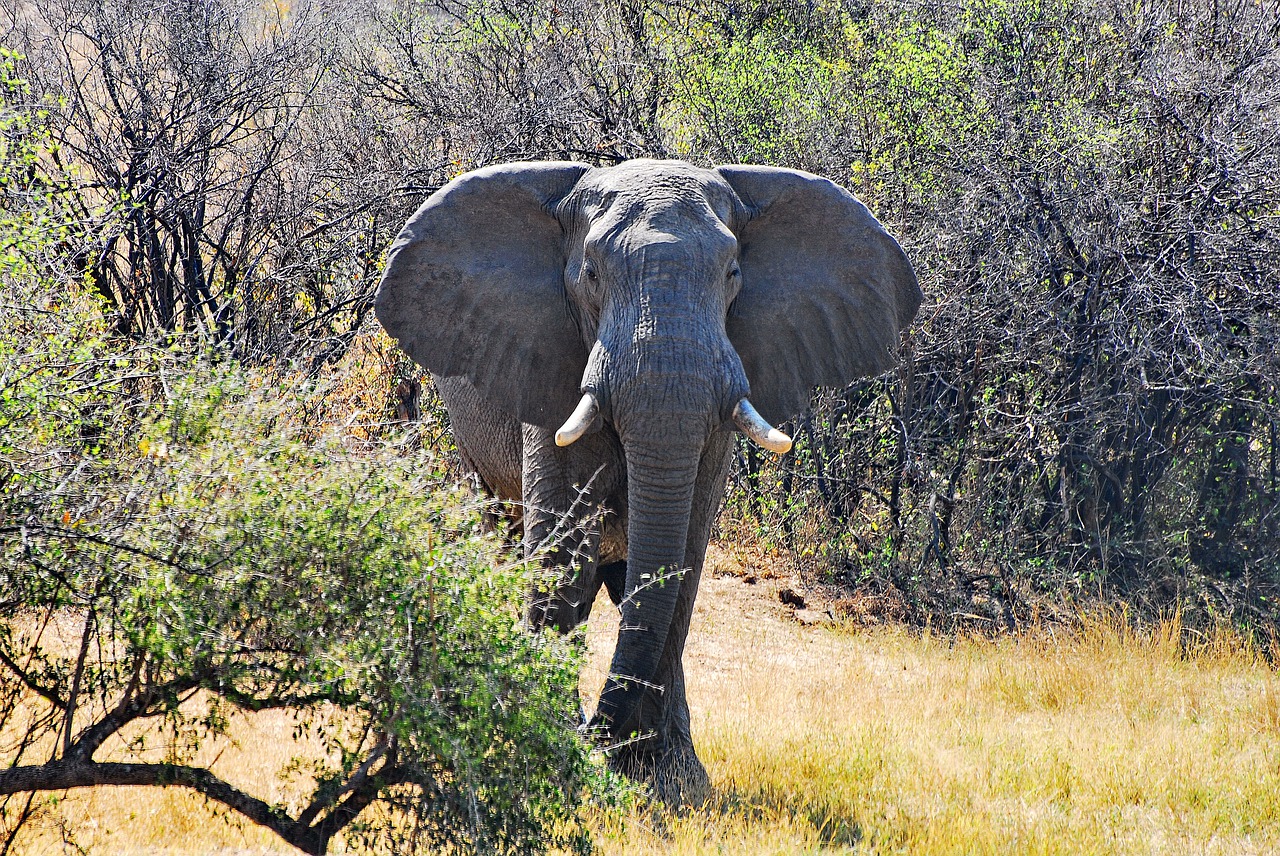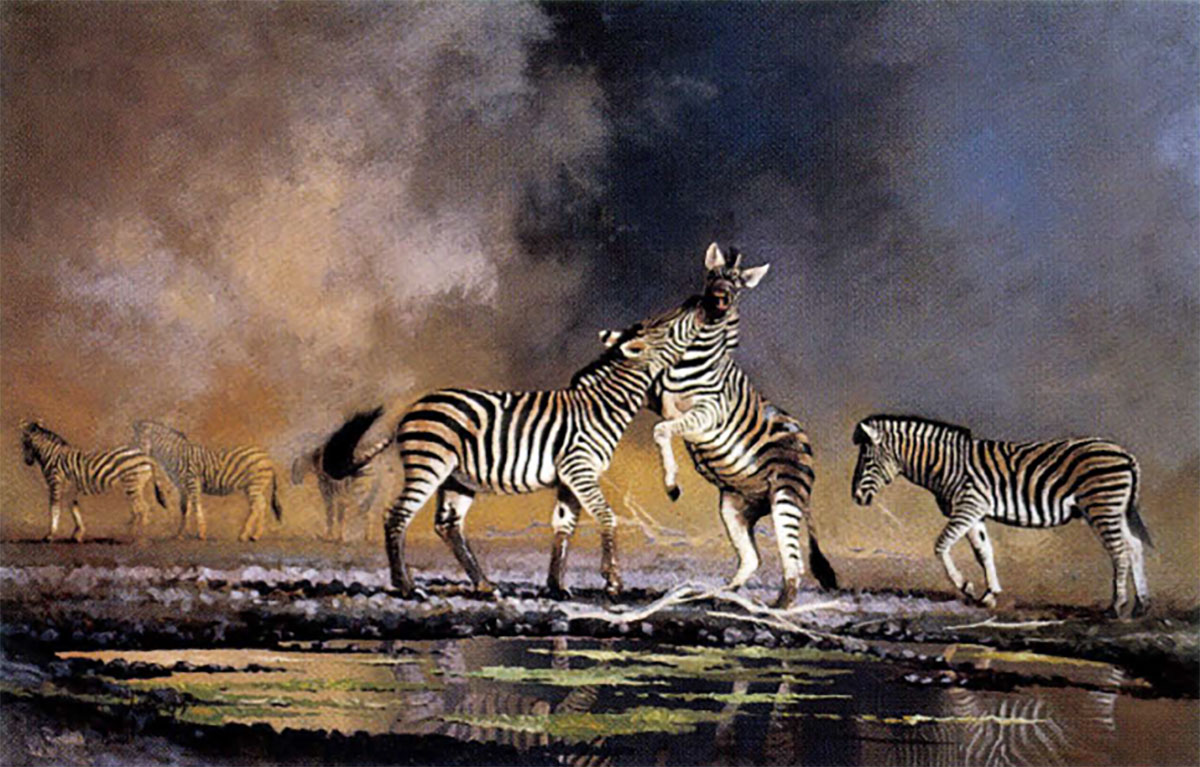At last, after another half-hour’s spooring, the foremost Kafir, turning over some dung with his naked foot, pronounced it to be warm, and I knew we might now expect to see our game every instant. Indeed, not ten minutes afterwards my boy Minyama, who was in front on the spoor, suddenly bobbed down as if he had been shot, and I knew he had seen the elephants; so, creeping forwards, I peered cautiously over the ridge, and there beheld two magnificent old bulls standing under a large mopani tree about 70 yards down the side of the hill.
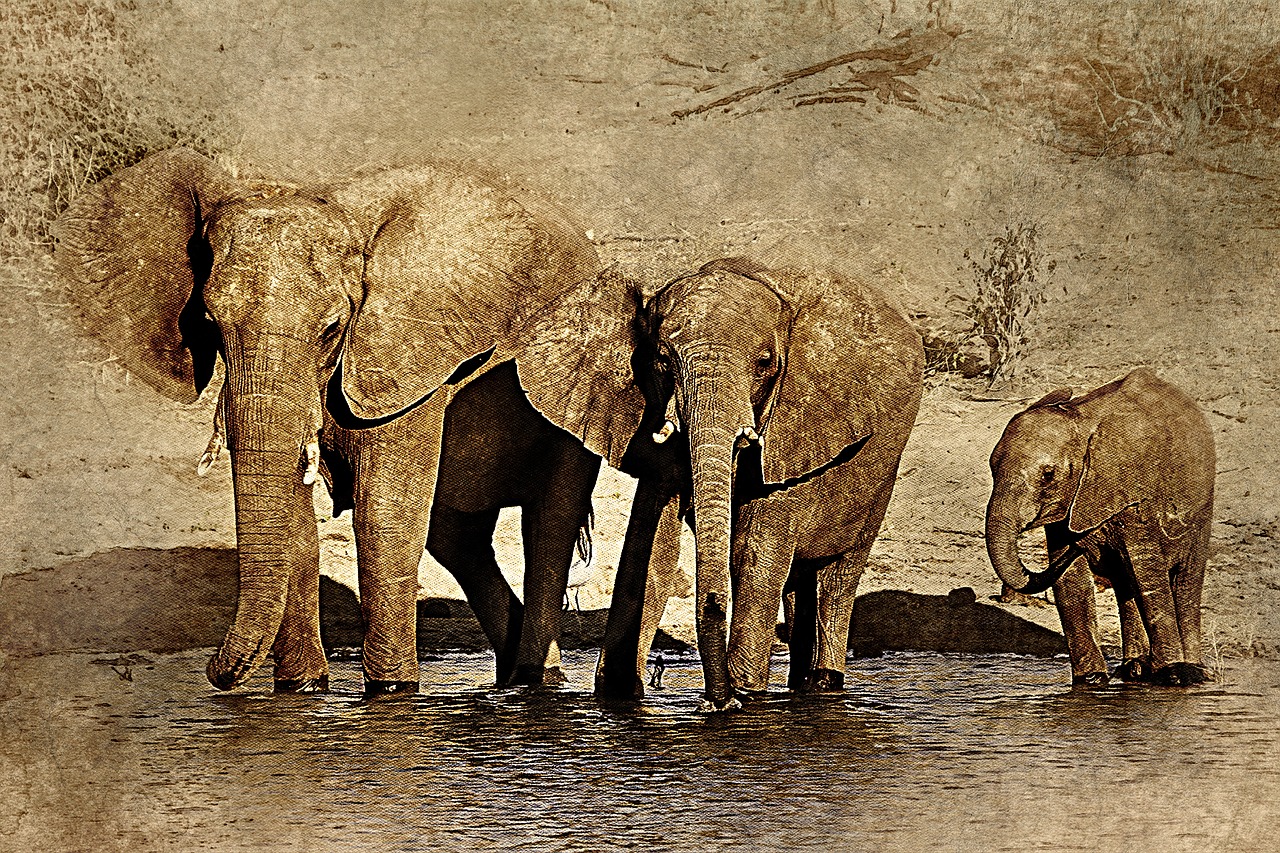
The largest was standing broadside on and was truly a splendid beast, with a pair of remarkably long, white, perfect tusks protruding far beyond the lip—the largest, in fact, I have ever seen before or since in the flesh. The other was standing head-on to us, but, though his tusks were foreshortened, owing to his position, I could see they were also both long and thick.
They were evidently enjoying a little rest, their large ears flapping listlessly against their sides like two enormous fans, and little thinking of the persevering enemy who had followed them like an avenging Fate through all their turnings, and now at last stood so near them as they slept in fancied security. There was, however, no time to be lost, as the sun had already disappeared behind the hills, and I knew I had, at the outside, but a short half-hour of daylight left.
About halfway down the slope of the hill, between where we stood and the elephants, lay a fallen mopani tree, which had been no doubt uprooted by one of these beasts during the last rainy season; so, taking my gun, and followed closely by my second carrier, I crept, step by step, very cautiously down towards them.
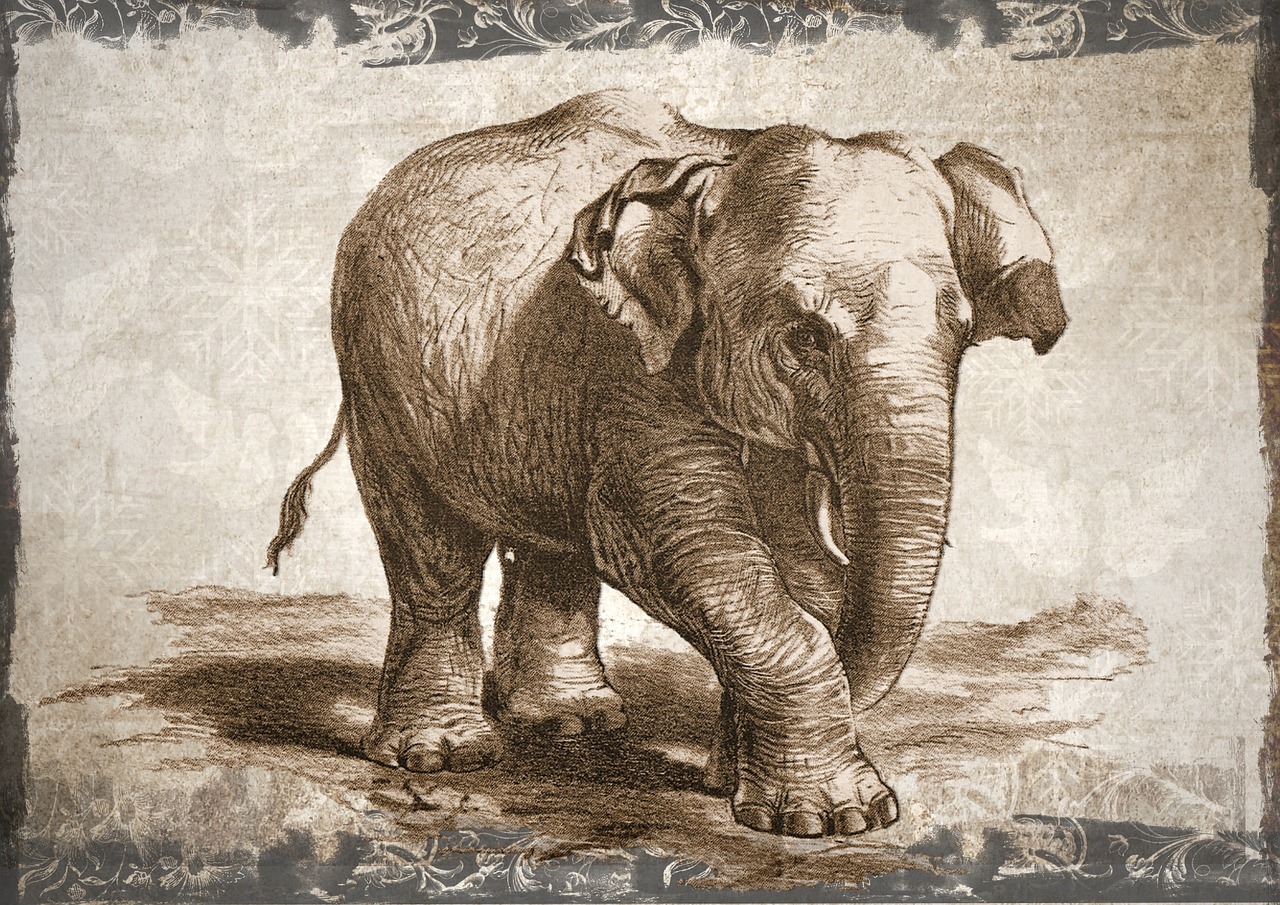
Though an elephant is very bad of sight, and one can walk almost up to one if the wind is right and if there is any bush about, yet here, there being only the few dead branches of the mopani tree to screen me from their sight, I was afraid they might see me and run before I could get there. However, I reached the tree safely enough without disturbing them, and was just climbing over some of the prostrate branches to get to the farther side, when, unfortunately, I trod upon a dry stick, which broke with a loud crack, and the larger elephant hearing it immediately walked a few steps forward and stood with his head up and ears extended, listening intently.
I was now not more than 30 yards off, and he was standing broadside on, offering a splendid shot, but, unfortunately, with his shoulder partially covered by a small mopani tree against which he stood. That hindered me from getting a chance at his heart, but there was no time to be lost, as he might imagine danger was near, and run at any moment; so, taking an aim for his lungs (which, if in the right spot, is almost a better shot for large game than through the heart), I touched the hair trigger, I myself being nearly knocked down by the recoil of the heavily charged gun.
On receiving the bullet the huge beast uttered a loud roar—half bellow, half groan—and, followed by his companion, tore down the gently sloping hill at a tremendous rate. Throwing down the gun to be loaded and brought on by my attendant, I, closely followed by my second gun-carrier and remaining Kafirs (whose work it was to get ahead of the elephants and turn them back towards me), dashed after them in eager pursuit. At the bottom of the hill, about 200 yards distant, was a deep watercourse, and whilst the elephants were getting through this we gained on them considerably. The wounded one, on reaching the top of the opposite bank, came to a stand and, turning round, faced his pursuers, throwing the blood in streams from his upraised trunk.
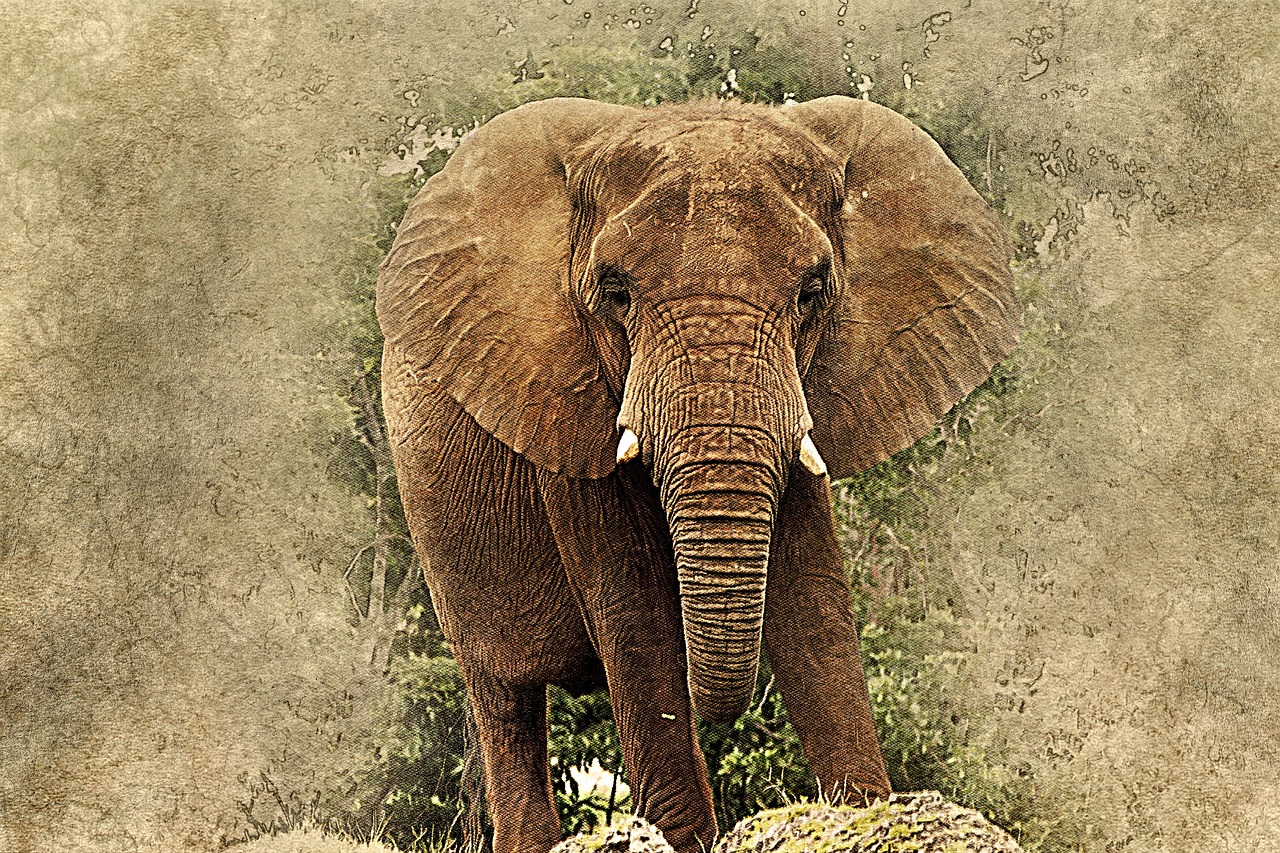
Being now close to him, I seized my second gun from the Kafir’s hands and was just about to fire when with a crash this true monarch of the African forest fell, slain by the only living thing that could work him harm—ruthless man.
I did not stop a second to contemplate my prize, but kept on at my best pace after the other, who was disappearing over the next ridge, about 150 yards in advance. The country being pretty open, we were enabled to keep him in view, although a good distance off; but the ground was excessively rough under foot, great boulders and stones lying about in every direction, and the way in which the huge beast scrambled over them was truly marvelous.
At last he reached a broad, dry sand river with a steep high bank on the farther side, and as he entered it we were still some 300 yards behind. Now was my chance, and probably my last, for I knew he would lose time in climbing out the other side, but when once up would make the running again, and as it was in the cool of the evening, the Kafirs would stand little chance of getting up and turning him; so, though terribly blown, I gathered my exhausted energies together for a last effort and, closely attended by my gun-carrier, made a spurt.
As the elephant neared the top, toiling painfully and slowly up, I got to within about 120 yards of him and, taking a quick aim, just behind the big ribs as he turned half sideways, fired.
“Ingenile!” (It’s gone into him) said the Kafir, and we ran on again, jumping into the bed of the river just as the bull disappeared over the opposite bank. Tired and panting, we toiled across the deep sand of the river bed, and on scrambling up to the level ground beyond were very much surprised and rejoiced to see the object of our pursuit, not a hundred yards off, on his fore knees with his tusks resting on the ground; and before we could get up to him he rolled over on his side, never to rise again.
The bullet, having entered just behind the ribs and driven well forwards, must have divided some of the large arteries just above the heart, for on cutting out that organ the next morning we found it had not been actually struck, as I had at first imagined. Thus with two bullets I had laid low two splendid elephant bulls, and I felt well satisfied with my success.
Note: This story was excerpted rom the author’s A Hunter’s Wanderings in Africa.
 This classic book follows noted adventurer Frederick Selous as he spends nine years amongst the game in the far interior of South Africa as a professional hunter beginning in 1871 at the young age of 20. Selous’ adventures were the acknowledged model for Henry Rider Haggard’s books about the fictional character, Allan Quatermain. It is also claimed that Selous’ stories eventually influenced the creation of Indiana Jones. Shop Now
This classic book follows noted adventurer Frederick Selous as he spends nine years amongst the game in the far interior of South Africa as a professional hunter beginning in 1871 at the young age of 20. Selous’ adventures were the acknowledged model for Henry Rider Haggard’s books about the fictional character, Allan Quatermain. It is also claimed that Selous’ stories eventually influenced the creation of Indiana Jones. Shop Now

